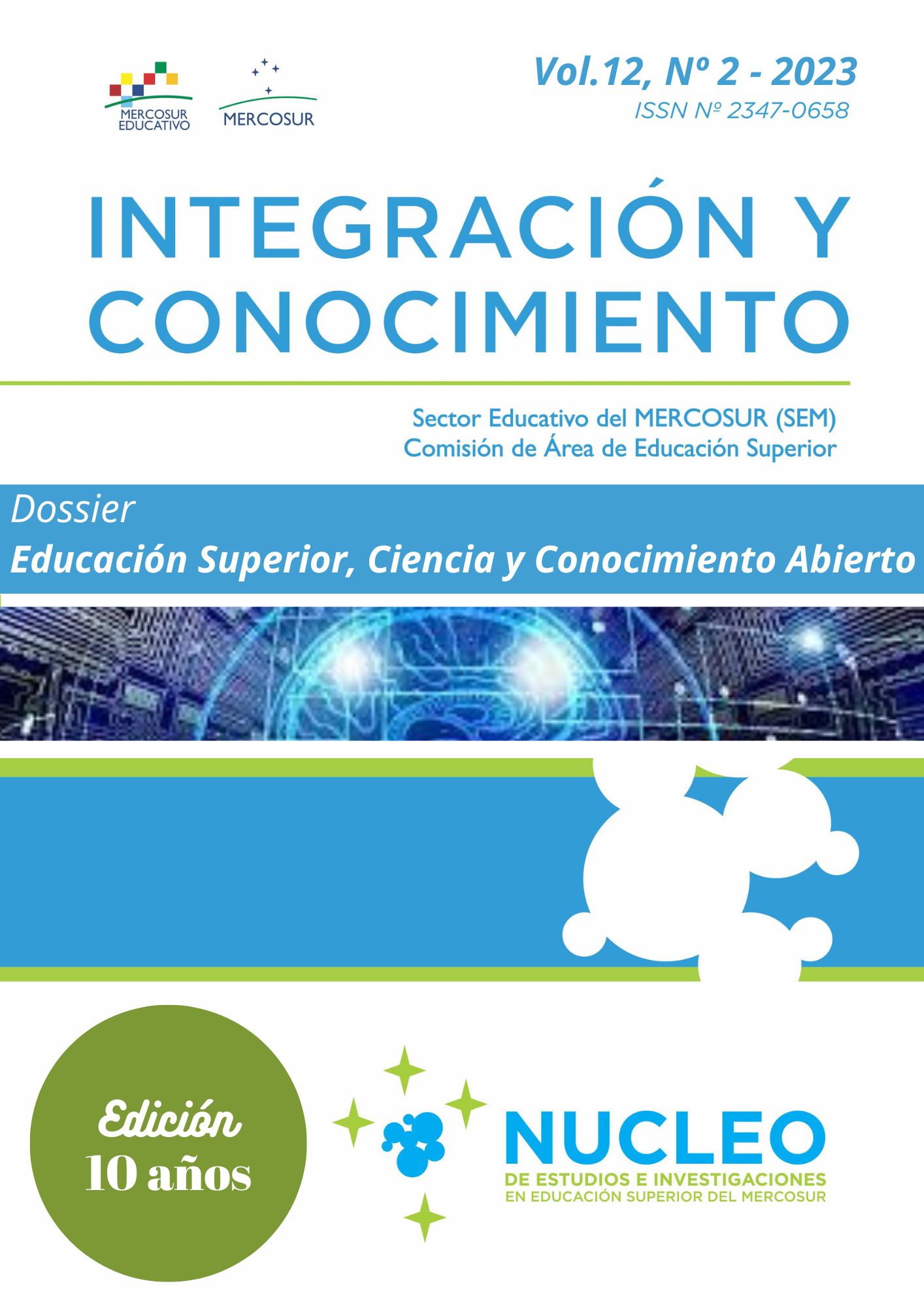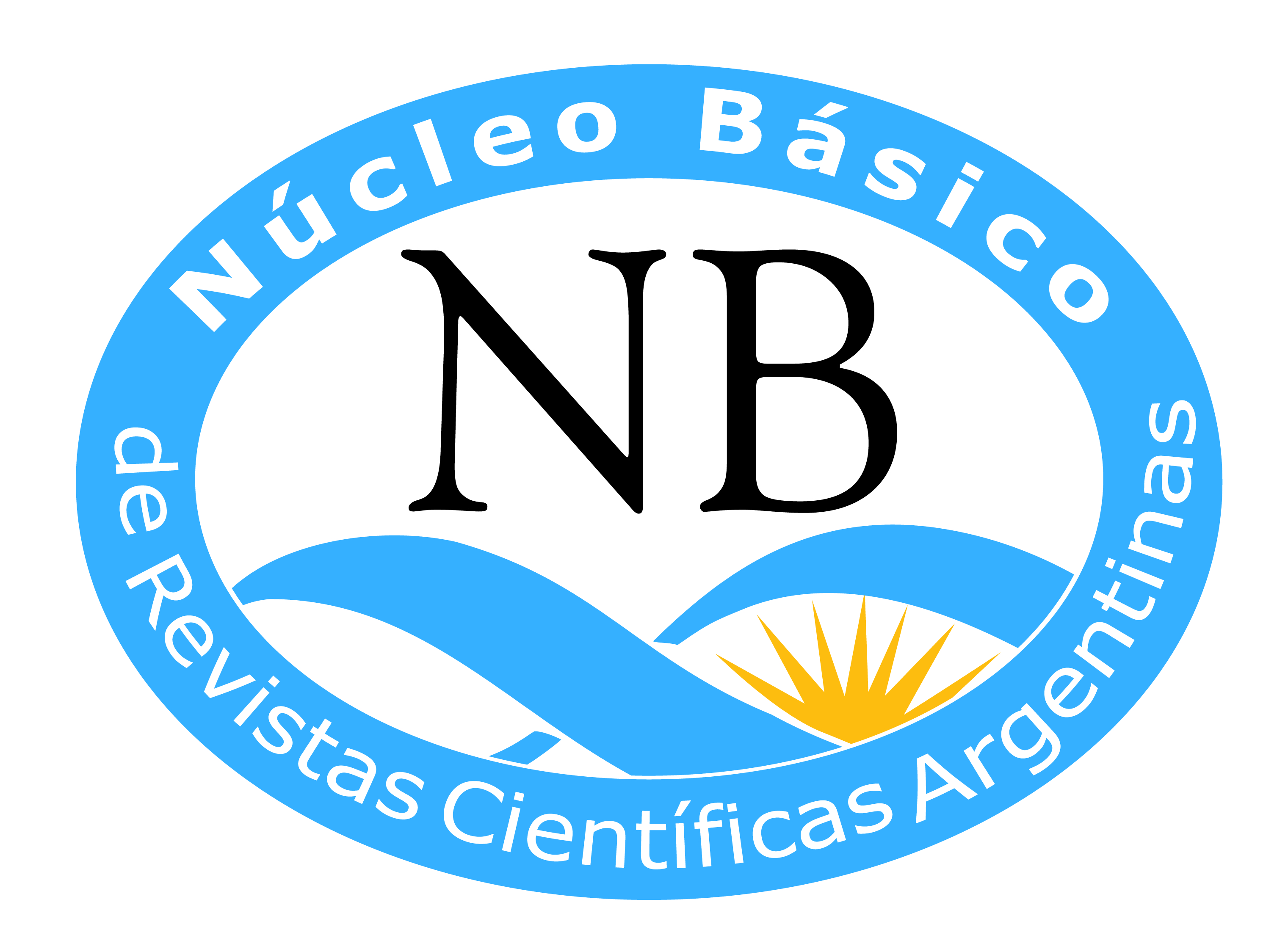Some challenges to advance the open science agenda from the South
DOI:
https://doi.org/10.61203/2347-0658.v12.n2.42032Abstract
The dissemination of the Open Science model in order to eliminate knowledge gaps is an increasingly pressing need and the experience lived during the COVID19 pandemic is proof of this. But the momentum of this new model is not without its difficulties. In this essay, we postulate some challenges directly or indirectly related to intellectual property that either generates significant resistance to the adoption of the Open Science model or does not yet have a satisfactory response within the current Open Science recommendations. We specifically explore three issues: 1) the intellectual property barriers to legal access to data as input in the framework of data science-based research, 2) the difficulties in protecting the public domain or intellectual creation as a common good, and 3) the absence of appropriate standards or mechanisms to claim the ethical reuse of open scientific production. This is an exploration from a critical point of view in which we leave several questions open with the aim of contributing to the debate by the scientific community.
Downloads
References
Arocena, R. (2017). Conocimiento y poder en el desarrollo. Hacia estrategias democratizadoras. Uruguay: Biblioteca Plural, CSIC, Universidad de la República
Banks, G. C., Field, J. G., Oswald, F. L., O’Boyle, E. H., Landis, R. S., Rupp, D. E., & Rogelberg, S. G. (2022). Answers to 18 questions about open science practices. En Key Topics in Psychological Methods 111-124. Cham: Springer Nature Switzerland.
Contractor D., McDuff D., Haines J. K., Lee J., Hines C., Hecht B., Vincent N. y Li H. (2022). Behavioral Use Licensing for Responsible AI. Trabajo presentado en: Conference on Fairness, Accountability, and Transparency, Seoul, Republic of Korea. Disponible en: https://research.ibm.com/publications/behavioral-use-licensing-for-responsible-ai
Díaz, P, y Rangel, V. (2023). Informe: Políticas de Inteligencia Artificial y Derechos de Autor en Latinoamérica. Alianza de la Sociedad Civil Latinoamericana para el Acceso al Conocimiento. Recuperado de: https://datysoc.org/wp-content/uploads/2023/03/Informe-ia-y-da.pdf
UNIÓN EUROPEA. (2019). Directiva (UE) 2019/790 del Parlamento Europeo y del Consejo, de 17 de abril de 2019, sobre los derechos de autor y derechos afines en el mercado único digital y por la que se modifican las Directivas 96/9/CE y 2001/29/CE (Texto pertinente a efectos del EEE.), (UE) 2019/790, EP, CONSIL, 130 OJ L (2019). Recuperado de: http://data.europa.eu/eli/dir/2019/790/oj/spa
Federici, S. (2020). Reencantar el mundo. El feminismo y la política de los comunes. España: Traficantes de sueños
Flynn, S., Geiger, C., Quintais, J.P., Margoni, T., Sag, M., Guibault, L., Carroll, M. (2020). Implementing User Rights for Research in the Field of Artificial Intelligence: A Call for International Action. European Intellectual Property Review 2020, Vol. 42, Issue 7, 393-398., American University, WCL Research Paper No. 2020-12. Recuperado de SSRN: https://papers.ssrn.com/abstract=3578819
Flynn, S., Schirru, L., Palmedo, M., y Izquierdo, A. (2022). Research Exceptions in Comparative Copyright. PIJIP/TLS Research Paper Series no. 75. Recuperado de: https://digitalcommons.wcl.american.edu/research/75
Free Software Foundation (2016). ¿Qué es el SW libre? Recuperado de: https://www.gnu.org/philosophy/free-SW.es.html
Geiger, C., y Bernd J. (2023). Conceptualizing a “Right to Research” and its Implications for Copyright Law: An International and European Perspective. American University International Law Review,38(1), 1-86 . Recuperado de: https://papers.ssrn.com/abstract=4414085
GNU. (2018). Copyleft. Recuperado de: https://www.gnu.org/licenses/copyleft.es.html
Hao, K. (2020). The problems AI has today go back centuries. MIT Technology Review. Recuperado de: https://www.technologyreview.com/2020/07/31/1005824/decolonial-ai-for-everyone/
Hao, K. (2022). La inteligencia artificial está creando un nuevo orden mundial colonial. MIT Technology Review. Recuperado de: http://www.technologyreview.es/s/14144/la-inteligencia-artificial-esta-creando-un-nuevo-orden-mundial-colonial
Hardt, M. y Negri, T. (2009). Commonwealth. Cambridge, Massachusetts, USA:Harvard University Press.
Helfer, L. (2003). Human Rights and Intellectual Property: Conflict or Coexistence? SSRN Electronic Journal. Recuperado de: http://www.ssrn.com/abstract=459120.
Hernández, L., Canales M.P., y de Souza, M. (2022). Inteligencia Artificial y participación en América Latina: Derechos Digitales. Recuperado de: https://www.derechosdigitales.org/wp-content/uploads/IA-Participacion-ES-2022.pdf.
Instituto para la Integración de América Latina y el Caribe, Banco Interamericano de Desarrollo -BID-INTAL- (2018). Algoritmolandia: inteligencia artificial para una integración predictiva e inclusiva de América Latina. Revista Integración & Comercio 22(44). Recuperado de: https://publications.iadb.org/publications/spanish/document/RevistaIntegraci%C3%B3n--Comercio-A%C3%B1o-22-No-44-Julio-2018-Algoritmolandia-inteligencia-artificial-para-una-integraci%C3%B3n-predictiva-e-inclusiva-de-Am%C3%A9rica-Latina.pdf
Jacobs, N. (2006). Open Access: Key Strategic, Technical and Economic Aspects. Chandos Publishing
Joseph, H. (2015). The Right to Read is the Right to Mine. SPARC. Recuperado de: https://sparcopen.org/news/2015/the-right-to-read-is-the-right-to-mine/
Mazzone, J. (2011). Copyfraud and other abuses of intellectual property law. Stanford, California: Stanford Law Books, an imprint of Stanford University Press.
Mellor, D., Nosek, B. y Pfeiffer, N. (2020). Conflict between Open Access and Open Science: APCs Are a Key Part of the Problem, Preprints Are a Key Part of the Solution. COS - Center for Open Science.
Murray-Rust, P. (2012). The Right to Read Is the Right to Mine. Open Knowledge Foundation blog. Recuperado de: https://blog.okfn.org/2012/06/01/the-right-to-read-is-the-right-to-mine/
OECD. (2022). Uso Estratégico y Responsable de La Inteligencia Artificial En El Sector Público de América Latina y El Caribe. Paris: OECD. Recuperado de: https://www.oecd-ilibrary.org/governance/uso-estrategico-y-responsable-de-la-inteligencia-artificial-en-el-sector-publico-de-america-latina-y-el-caribe_5b189cb4-es
OMPI. (2018). Glosario de la OMPI de Derecho de Autor y Derechos Conexos. (autor principal: György Boytha). Ginebra, 1980. Voz 111, p. 113.
OMPI. (2023). SCCR/42/4 REV. Proposal by the African Group for a Draft Work Program on Exceptions and Limitations. Recuperado de: https://www.wipo.int/edocs/mdocs/copyright/es/sccr_42
/sccr_42_4_rev.pdf
Oriakhogba, D. (2023). The Right to Research in Africa. Exploring the Copyright and Human Rights Interface. Recuperado de: https://link.springer.com/book/9783031332838.
Randall, G. (2021). To foster Open Science we need a new system to protect intellectual creation. IAU Horizons,26(1)44—45.
Stieg, C. (2020). How this Canadian start-up spotted coronavirus before everyone else knew about it. CNBC. Recuperado de: https://www.cnbc.com/2020/03/03/bluedot-used-artificial-intelligence-to-predict-coronavirus-spread.html
Strømme, C. B., Lane, A. K., Halbritter, A. H., Law, E., Nater, C. R., Nilsen, E. B., Boutouli, G. D., Egelkraut, D. D., Telford, R. J., Vandvik, V., y Cotner, S. H.. (2022). Close to Open—Factors That Hinder and Promote Open Science in Ecology Research and Education. PLOS ONE 17(12) Recuperado de: https://journals.plos.org/plosone/article?id=10.1371/
journal.pone.0278339
UNESCO. (2021). Recomendación de la UNESCO sobre la Ciencia Abierta. Document SC-PCB-SPP/2021/OS/UROS. Recuperado de: https://unesdoc.unesco.org/ark:/48223/
pf0000379949_spa?1=null&queryId=N-EXPLORE-d66e0e26-bda7-422e-bc54-64c1e8269
eb3
Downloads
Published
Issue
Section
License
Copyright (c) 2023 Integración y Conocimiento

This work is licensed under a Creative Commons Attribution-NonCommercial-ShareAlike 4.0 International License.
Authors who have publications with this journal accept the following terms:
a. Authors shall retain their copyright and guarantee the journal the right of first publication of their work, which shall simultaneously be subject to the Creative Commons License of Recognition which allows third parties to share the work as long as its author is indicated and its first publication is this journal.
b. Authors may adopt other non-exclusive licensing agreements for the distribution of the published version of the work (e.g., depositing it in an institutional telematic archive or publishing it in a monographic volume) provided that the initial publication in this journal is indicated.
c. Authors are allowed and encouraged to disseminate their work via the Internet (e.g. in institutional telematic archives or on their website) after publication of the article, which may lead to interesting exchanges and increased citations of the published work. (See The Effect of Open Access).



